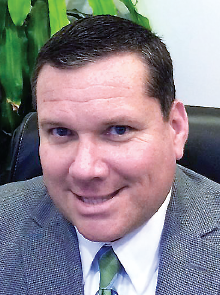UC-Davis Program Offers MH Training to Primary Care Physicians
Abstract
The fellowship addresses common and clinically significant gaps in the clinical knowledge of primary care physicians and thereby expands mental health care where it is needed most.
Psychiatrists at the University of California-Davis (UC-Davis) are helping to train a new cadre of primary care clinicians to treat common mental health conditions in the medical setting.
The UC-Davis Train New Trainers Primary Care Psychiatry (TNT-PCP) Fellowship is a year-long cross-disciplinary, interprofessional fellowship certificate program designed to train primary care physicians (PCPs) in managing the most frequently encountered mental health–related disorders and their treatments. It is taught by UC-Davis faculty in psychiatry, emergency psychiatry, community psychiatry, geriatric psychiatry, psychology and neuropsychology, and somatic medicine.

“The large majority of behavioral health care delivery is not done by mental health providers, but by primary care providers.” —Robert Michael McCarron, D.O.
“The large majority of behavioral health care delivery is not done by mental health providers, but by primary care providers,” fellowship co-director Robert Michael McCarron, D.O., told Psychiatric News. “Unfortunately, PCPs receive limited formal training on mental health diagnosis and treatment. Even though over 70 percent of antidepressant prescriptions are written by PCPs, they often struggle with establishing the correct psychiatric diagnosis and treatment plan. This fellowship addresses these common and clinically significant gaps in clinical knowledge and experience, while expanding the mental health workforce where it is needed most—in primary care settings, by way of education and mentorship.”
McCarron is director of the Integrated Internal Medicine/Psychiatry Education Program at UC-Davis. He is also a past president of the Association of Medicine and Psychiatry. Shannon Suo, M.D., a family medicine/psychiatrist at UC-Davis, is co-director of the fellowship.
“We want to expand the mental health workforce with this training. We also train the TNT-PCP fellows how to train their colleagues,” McCarron said.
Trainees will learn how to complete an evidence-based and efficient psychiatric interview in the primary care setting. They will also be trained to effectively diagnose and treat commonly encountered psychiatric conditions. Most importantly, trainees will learn how to teach these principles to their primary care colleagues, McCarron said.
Thirty-four fellows have signed up for this year; the fellowship is now recruiting and accepting applicants for 2017, he said.
The curriculum involves over 50 required hours of training, including two weekend teaching sessions (20 to 24 CME hours); one hour a month of individualized in-person or teleconferenced mentoring sessions with a TNT fellowship faculty member/mentor (12 non-CME hours); and twice monthly live, case-based discussions and patient interviews with a focus on integrated primary care–psychiatry (20 CME hours). A minimum of 40 hours of CME will be covered as part of the fellowship tuition.
The inaugural class begins this month and will coincide with the first weekend session, which will be in Sacramento, Calif., January 15 and 16. The second weekend session will take place in early fall. Both weekend sessions will be held concurrently with a CME conference on primary care psychiatry, which will be open to the public and cosponsored by the California Psychiatric Association.
McCarron explained that UC-Davis is home to two training programs that combine psychiatry and primary care—family medicine/psychiatry and internal medicine/psychiatry.
“We have multiple integrated clinic sites in both primary care and specialty medical care,” he said. “We believe mentorship and education for medical students, psychiatry residents, and primary care–based trainees in the area of integrated and collaborative care are critical to the development and sustainability of a large-scale change in how we deliver mental health care in this country.”
The fellowship appears to be unique, at least for adult psychiatry. A New York state initiative, Project TEACH, provides psychiatric consultation to pediatric PCPs about prescribing psychotropic medication. The statewide program funds two projects: the Child and Adolescent Psychiatry Education and Support Program for Primary Care Physicians and the Child and Adolescent Psychiatry for Primary Care program.
The latter, which is the larger of the two, is a collaboration among the child and adolescent psychiatry divisions at the State University of New York at Buffalo, Columbia University Medical Center/New York State Psychiatric Institute, Hofstra–North Shore LIJ School of Medicine, University of Rochester, and State University of New York Upstate Medical University (Syracuse) to provide education and phone, face-to-face, and telepsychiatric consultation to pediatricians and family physicians caring for children in more than 90 percent of the state (Psychiatric News, January 16, 2015).
McCarron said mental health professionals can also benefit from the TNT-PCP fellowship and are invited to apply. “Cross-disciplinary learning and sharing information will result in better patient care and decreased unnecessary utilization of services,” he said. ■
More information about the TNT-PCP fellowship can be obtained by emailing McCarron at [email protected]. Individuals who wish to apply should contact Kathie Howes, TNT-PCP coordinator, at [email protected].



